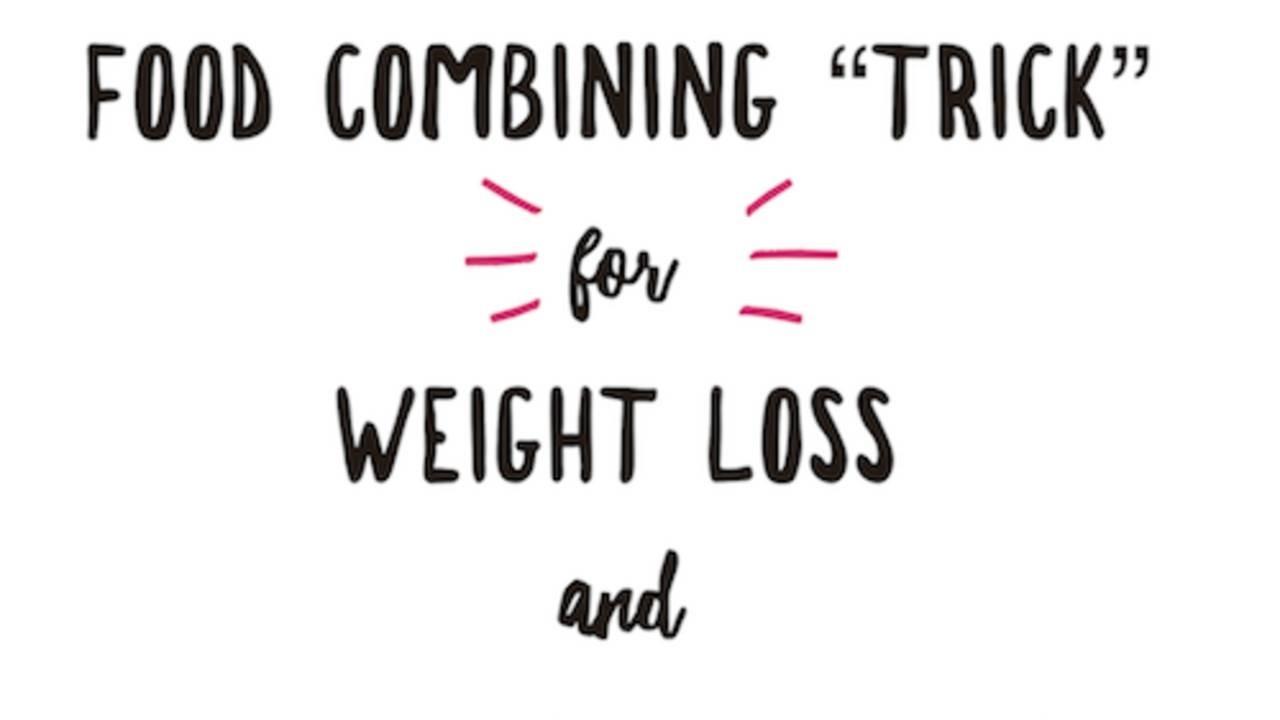The Food Combining "Trick" For Weight Loss and Digestion

When I discovered food combining about 7 years ago through both Natalia Rose’s book The Raw Food Detox Diet and Donna Gates’ Body Ecology Diet, it was life-changing. I am, by no means, exaggerating when I say that. My digestion improved, I had more energy than ever before, my skin looked clear and bright, and stubborn weight effortlessly fell off of me. Even my mood improved. I never felt better! This way of eating was also so incredibly freeing. I didn’t have to worry about labels, whether I should or shouldn’t eat meat, calorie counting, or portion control (which I’ve always been terrible at, anyway!).
Putting these simple food combining guidelines into action will ensure food moves through you smoothly and efficiently, without getting stuck in your intestines, clogging you up, and weighing you down. It’ll also ensure you absorb more nutrients from your food, leading to healing, incredible energy, and losing and keeping the weight off.
EAT FRUIT ALONE ON AN EMPTY STOMACH, OR NOT AT ALL
Think you’re doing yourself a favor by eating fruit for dessert? Think again. Because fruit digests so quickly (30-60 minutes), if you combine it with other foods or after a meal, it can sit there and ferment, causing gas, bloating, and promoting bacterial overgrowth. Stick to eating fruit on an empty stomach, in the morning, or as a snack in-between meals. Just make sure it’s been 3-4 hours after your last meal and 30-60 minutes before you’re next meal. It’s best to eat fruit alone, but most people do well combining it with non-starchy vegetables, in a smoothie, for instance. Just be sure to skip the nut butters!
DON’T COMBINE YOUR PROTEINS AND STARCHES
When you eat proteins (meat, chicken, fish, eggs, soy, dairy), your stomach secretes hydrochloric acid and the enzyme pepsin, creating an acidic environment in order to break the proteins down. When you eat starches (potatoes, root vegetables, grains, pasta, bread), your stomach secretes the enzyme ptyalin, creating an alkaline environment in order to break the starches down. When you eat proteins and starches together, they neutralize each other and inhibit digestion. So, eating chicken and sweet potatoes or eggs on toast wouldn’t be the best digestive-friendly meal. Instead, stick to combining your proteins only with non-starchy vegetables and your starches only with other starchy and non-starchy vegetables.
The 4 Fat Loss Mistakes You're Probably Making
Eating healthy and doing all the "right" things, but still frustrated you're not seeing results? Click here to download this FREE guide with the most common mistakes I see people making on their fat loss journey.
NUTS AND SEEDS
Nuts and seeds are considered a protein-fat and therefore should not be combined with proteins or starches. Because nuts and seeds are so difficult to digest, I always recommend eating them with leafy green vegetables and to soak or sprout them before eating.

A FEW OTHER RULES & EXCEPTIONS
- Non-starchy vegetables combine well with all foods.
- You should wait at least 4 hours before switching over to another category of foods, in order to fully digest the previous meal.
- Fats and oils (butter, ghee, coconut oil) combine well with all foods. Adding large amounts of fat, however, will slow down the digestion of your food, so use sparingly, especially when it comes to proteins.
- You should avoid combining different protein types at one meal.
- Avocados are considered a starch.
- Peanuts are considered a starch, but I don’t recommend them because of mold.
- Beans are mainly a starch, but they have a small amount of protein, so they can be difficult to digest, which is why I don’t recommend them.
- Bananas combine well with other fruits and also with starches.
The best part of these guidelines is that you don’t have to stick to them 100% of the time. I often “cheat” with sushi (protein & starch combination), but I’m sure to do it for dinner, where my system will get plenty of rest before my next meal. Do I feel great when I mis-combine foods? No, not at all. I often feel bloated and tired, but sometimes it’s worth the delicious meal – just not ALL of the time!
Was this helpful? Have you tried food combining?




